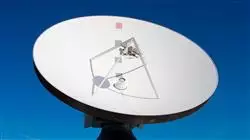University certificate
The world's largest faculty of information technology”
Introduction to the Program
All the development processes that Communication Theory develops in the field of Computer Science, compiled in a high quality program”

Advances in telecommunications are constantly occurring, implying, for the professionals involved in this field, the arrival of new developments and updates that modify or complement the way of working. It is therefore necessary to have IT experts who can adapt to these changes and who have first-hand knowledge of the new tools and techniques that are emerging in this field.
The Master's Degree in Communication Theory covers all the topics that are involved in this field. Studying this program has a clear advantage over other masters that focus on specific blocks, which prevents the student from knowing the interrelation with other areas included in the multidisciplinary field of telecommunications. In addition, the teaching team in this program has carefully selected each of the topics to offer the student the most complete study opportunity possible, always in relation to current events.
This program is aimed at those interested in attaining a higher level of knowledge in Communication Theory. The main objective is to enable students to apply the knowledge acquired in this program in the real world, in a work environment that reproduces the conditions they may encounter in their future, in a rigorous and realistic manner.
Additionally, as it is a 100% online program, the student is not constrained by fixed timetables or the need to move to another physical location, but can access the contents at any time of the day, balancing their professional or personal life with their academic life.
With a study system oriented to contextual learning, this learning process will allow you to acquire the theoretical knowledge and practical skills you need”
This Master's Degree in Communication Theory contains the most complete and up-to-date educational program on the market. The most important features include:
- The development of case studies presented by experts in Communication Theory
- The graphic, schematic, and practical contents with which they are created, provide scientific and practical information on the disciplines that are essential for professional development
- Practical exercises where self assessment can be used to improve learning
- Special emphasis on innovative methodologies in Communication Theory
- Theoretical lessons, questions to the expert, debate forums on controversial topics, and individual reflection assignments
- Content that is accessible from any fixed or portable device with an Internet connection
With the most recognized learning support systems on the teaching scene, this program will allow you to learn at your own rhythm, without losing educational efficacy”
The teaching staff includes professionals from the IT sector, who contribute the experience of their work to this program, as well as renowned specialists from leading societies and prestigious universities.
Thanks to multimedia content developed with the latest educational technology, you will be immersed in situated and contextual learning. In other words, a simulated environment that will provide immersive learning, programmed to prepare for real situations.
This program is designed around Problem-Based Learning, whereby the professional must try to solve the different professional practice situations that arise throughout the program. For this purpose, the professional will be assisted by an innovative interactive video system created by renowned and experienced experts in Communication Theory.
You will learn not only the fundamental theory of each area of study, but also its practical application through an immersive study supported by the best audiovisual technology"

With the comfort and assurance of the most complete and advanced online system in the educational market"
Why study at TECH?
TECH is the world’s largest online university. With an impressive catalog of more than 14,000 university programs available in 11 languages, it is positioned as a leader in employability, with a 99% job placement rate. In addition, it relies on an enormous faculty of more than 6,000 professors of the highest international renown.

Study at the world's largest online university and guarantee your professional success. The future starts at TECH”
The world’s best online university according to FORBES
The prestigious Forbes magazine, specialized in business and finance, has highlighted TECH as “the world's best online university” This is what they have recently stated in an article in their digital edition in which they echo the success story of this institution, “thanks to the academic offer it provides, the selection of its teaching staff, and an innovative learning method aimed at educating the professionals of the future”
A revolutionary study method, a cutting-edge faculty and a practical focus: the key to TECH's success.
The most complete study plans on the university scene
TECH offers the most complete study plans on the university scene, with syllabuses that cover fundamental concepts and, at the same time, the main scientific advances in their specific scientific areas. In addition, these programs are continuously being updated to guarantee students the academic vanguard and the most in-demand professional skills. In this way, the university's qualifications provide its graduates with a significant advantage to propel their careers to success.
TECH offers the most comprehensive and intensive study plans on the current university scene.
A world-class teaching staff
TECH's teaching staff is made up of more than 6,000 professors with the highest international recognition. Professors, researchers and top executives of multinational companies, including Isaiah Covington, performance coach of the Boston Celtics; Magda Romanska, principal investigator at Harvard MetaLAB; Ignacio Wistumba, chairman of the department of translational molecular pathology at MD Anderson Cancer Center; and D.W. Pine, creative director of TIME magazine, among others.
Internationally renowned experts, specialized in different branches of Health, Technology, Communication and Business, form part of the TECH faculty.
A unique learning method
TECH is the first university to use Relearning in all its programs. It is the best online learning methodology, accredited with international teaching quality certifications, provided by prestigious educational agencies. In addition, this disruptive educational model is complemented with the “Case Method”, thereby setting up a unique online teaching strategy. Innovative teaching resources are also implemented, including detailed videos, infographics and interactive summaries.
TECH combines Relearning and the Case Method in all its university programs to guarantee excellent theoretical and practical learning, studying whenever and wherever you want.
The world's largest online university
TECH is the world’s largest online university. We are the largest educational institution, with the best and widest online educational catalog, one hundred percent online and covering the vast majority of areas of knowledge. We offer a large selection of our own degrees and accredited online undergraduate and postgraduate degrees. In total, more than 14,000 university degrees, in eleven different languages, make us the largest educational largest in the world.
TECH has the world's most extensive catalog of academic and official programs, available in more than 11 languages.
Google Premier Partner
The American technology giant has awarded TECH the Google Google Premier Partner badge. This award, which is only available to 3% of the world's companies, highlights the efficient, flexible and tailored experience that this university provides to students. The recognition as a Google Premier Partner not only accredits the maximum rigor, performance and investment in TECH's digital infrastructures, but also places this university as one of the world's leading technology companies.
Google has positioned TECH in the top 3% of the world's most important technology companies by awarding it its Google Premier Partner badge.
The official online university of the NBA
TECH is the official online university of the NBA. Thanks to our agreement with the biggest league in basketball, we offer our students exclusive university programs, as well as a wide variety of educational resources focused on the business of the league and other areas of the sports industry. Each program is made up of a uniquely designed syllabus and features exceptional guest hosts: professionals with a distinguished sports background who will offer their expertise on the most relevant topics.
TECH has been selected by the NBA, the world's top basketball league, as its official online university.
The top-rated university by its students
Students have positioned TECH as the world's top-rated university on the main review websites, with a highest rating of 4.9 out of 5, obtained from more than 1,000 reviews. These results consolidate TECH as the benchmark university institution at an international level, reflecting the excellence and positive impact of its educational model.” reflecting the excellence and positive impact of its educational model.”
TECH is the world’s top-rated university by its students.
Leaders in employability
TECH has managed to become the leading university in employability. 99% of its students obtain jobs in the academic field they have studied, within one year of completing any of the university's programs. A similar number achieve immediate career enhancement. All this thanks to a study methodology that bases its effectiveness on the acquisition of practical skills, which are absolutely necessary for professional development.
99% of TECH graduates find a job within a year of completing their studies.
Master’s Degree in Communication Theory
The global communication network depends on an extensive web that incorporates satellites, fiber optics, coaxial cables, and computer networks among its threads. Any damage to one of these strands can result in countless services and devices becoming inoperative. A deep understanding of the entire network, on the other hand, can be synonymous with beneficial transformations. This principle forms the foundation of the Master's in Communication Theory offered by TECH Global University: a 100% virtual program that spans 1500 self-regulated hours, meticulously breaking down each concept inherent to information transmission systems and the elements involved in this process. Aware of the reach of fields such as telematics, electronic engineering, and the internet, we have prepared a rigorous compilation of knowledge covering everything from field physics to satellite types, all delivered in a cutting-edge digital environment by the best professors in the field. Are you looking to enhance your career in a simple and efficient way? TECH is the answer.
Get ready to study a master's degree in communications
On October 4, 2021, half the world experienced a collapse due to the massive failure of major social media networks. According to Facebook employees, it was caused by a complication in DNS and the BGP protocol. In June of the same year, a provider called Fastly caused the collapse of several platforms, including the New York Times, CNN, PayPal, Amazon, Movistar, HBO, and Spotify. Without skilled personnel versed in communication systems and technologies to assess and repair the damage, the global society would have likely faced a severe crisis. So why not study all aspects of this field? This postgraduate program we offer is the perfect opportunity to enhance your computer science studies and gain competencies in topics such as electromagnetic waves, data transmission systems, mobile networks, digital signals, and more. Don’t miss out on this outstanding academic opportunity—enroll at one of the best digital universities in the world. When it comes to telecommunications, TECH is your connection to success.







